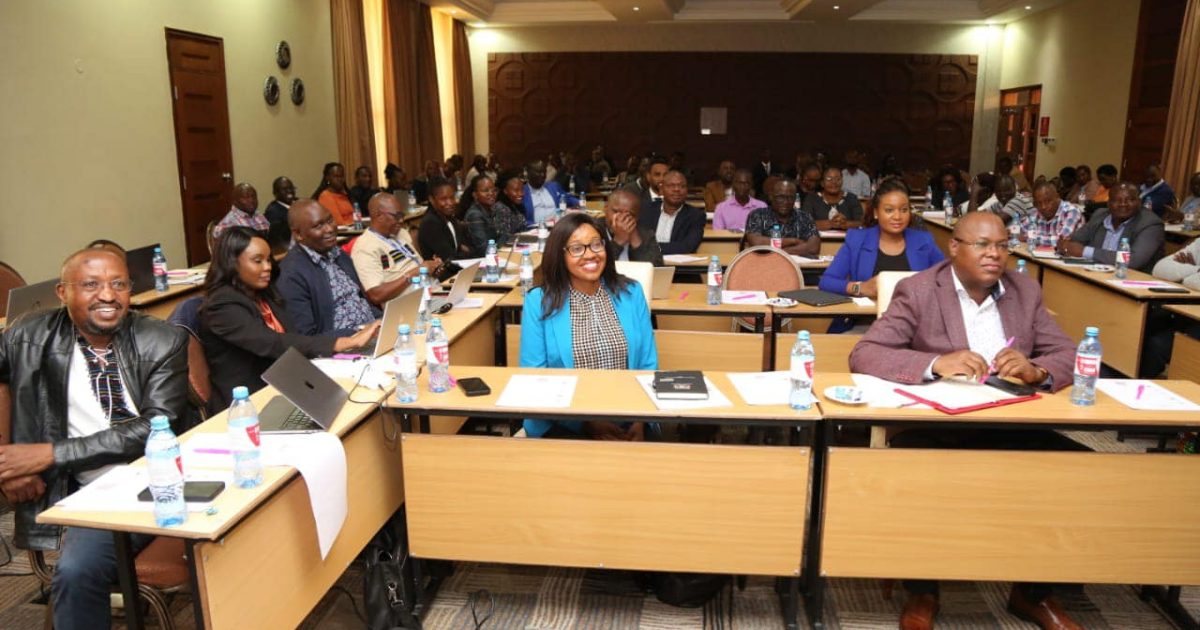The Council of Governors (COG) is prioritizing policies that facilitate license acquisition, pass laws and regulations that promote business growth, and foster a supportive culture among county staff across all 47 devolved units.
COG has affirmed further commitment to support the private sector through business and economic development programs, aiming at helping businesses thrive and nurture new ones.
Chairperson of the CoG Trade, Industry, Manufacturing, and Enterprise Development Committee Governor Susan Kihika indicated that such programmes include incentives such as lower taxes or rebates and refunds for certain costs of building factories, provision of land for expansion at subsidized cost to the private sector, provision of or facilitating access to low-cost loans, among others.
In effect, such measures would attract entrepreneurs and promote flow of capital to counties, ultimately leading to job creation.
A consultative meeting held in Naivasha aimed at fostering collaboration between the National Government, Ministry of Investment, Trade, and Industry, and the 47 County Governments in promoting fast growth of businesses that have the potential to contribute to the creation of the largest number of jobs and wealth.
Special emphasis on the progress made in supporting Micro, Small and Medium Enterprises (MSMEs), with initiatives ranging from funds to tax incentives, policy reforms, and automation of services, financial inclusion, and infrastructure development.
County boss focuses on promoting industry clusters to capitalize on marketing services’ critical mass, attract specialized finance, and provide cheaper access to technology and skilled labor.
Kihika suggests county governments should support businesses in connecting to markets, promoting innovation and technology use for competitiveness and job creation in the private sector.
“We are collectively building an environment that nurtures our local businesses and propels our counties forward. The private sector should be encouraged to invest in adding value to raw materials and selling the processed goods which have greater returns compared to raw materials in themselves. Counties should focus on infrastructure development, including road and rail networks, to enable faster and easier transportation of raw materials and finished products,” stated the Governor.
Kihika emphasized the need for county governments to collaborate and lobby for national support to ensure fair competition for local products from imported goods. County governments must focus on fostering a thriving environment, emphasizing the importance of MSMEs for income and job growth, and implementing innovative strategies to promote their development.
The governor highlighted the vital role of MSMEs in boosting income and job growth, emphasizing the need for innovative strategies by devolved units.
She underscored the MSMEs sector’s critical role in promoting growth in incomes and jobs. Consequently, Kihika stated that the devolved units need to put in place innovative strategies to promote the growth and development of the sector.
The sector, comprising 24% of GDP, 90% of private enterprises, and 93% of the labor force, is crucial for achieving national development goals in Kenya Vision 2030.
Despite the potential of MSME’s sector for wealth creation, job creation, and youth and women’s empowerment, smallest firms collapse within their first three years.
The Micro and Small Enterprises Act 2012 defines micro enterprises as firms, trades, services, industries, or businesses with annual turnovers under Sh 500,000 and less than 10 employees.
Kihika highlighted that MSMEs generate jobs, boost GDP, support industrial development, meet local service demand, innovate, and provide inputs and services to large firms.
MSMEs significantly contribute to economic growth, but their high attrition rate highlights the harsh economic environment they face in their struggle for survival.
The Nakuru Governor asserts that the MSME sector is a significant employment source and a significant contributor to global economies.
The FinAccess survey by the Kenya National Bureau of Statistics, Central Bank of Kenya, and FSD Kenya reveals that 30% of Kenya’s Micro and Small Enterprises employ 1-20 employees, making up a significant, though a largely invisible layer of the MSME sector
The recently published Kenya Small Firm Diaries study posits that small firms (defined in the study as enterprises employing between 1 and 20 employees) should be treated as a unique segment, quite different from micro firms (the typical ‘mama mboga’) and larger firms with specialized managerial capacities.
The Kenya Small Firm Diaries study involved collecting weekly cash flow data from 150 businesses in Kwale, Kisumu and Nairobi counties for a full year, revealing new information on financial flows and financial decisions.
Meanwhile, small firms straddle formal and informal set ups, which gives them the agility to negotiate a complex and volatile business environment.
By Jane Ngugi




